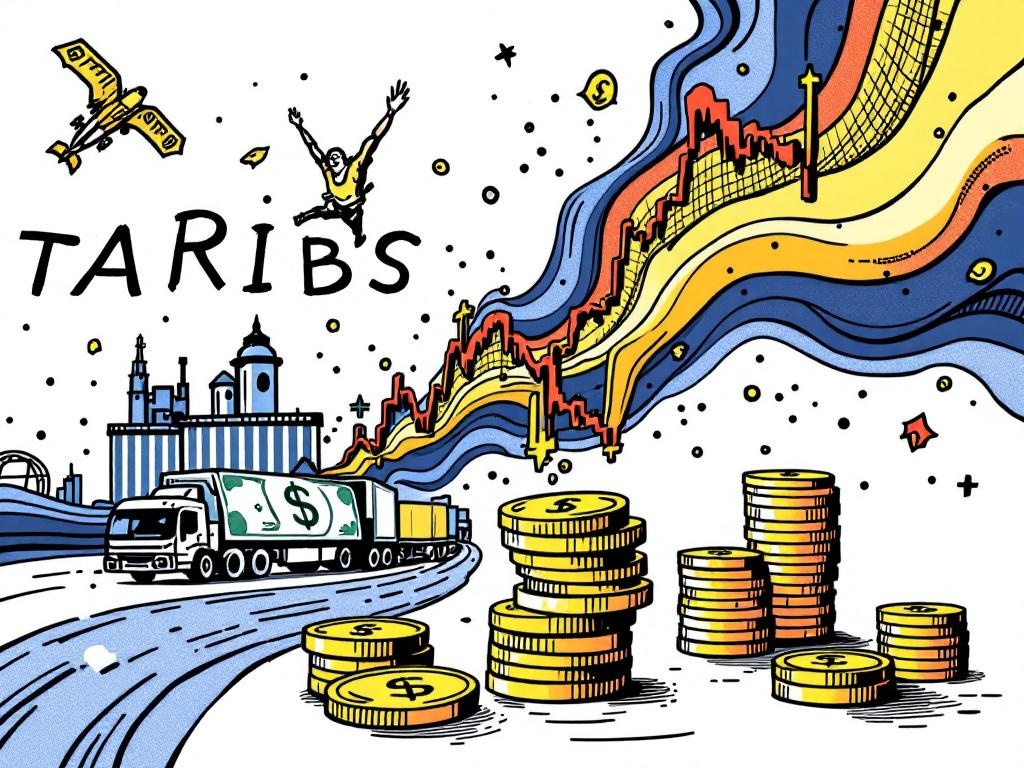AI Boom Masks Economic Risks from Trump's Tariffs, Experts Warn

New York, Thursday, 16 October 2025.
Leading economists suggest that the economic damage from tariffs during Trump’s administration is concealed by AI advancements, predicting future impacts as only partial effects are currently visible.
Economic Impact of Tariffs Amidst AI Growth
The recent surge in artificial intelligence (AI) investments has overshadowed the economic repercussions of tariffs imposed by former President Donald Trump. Leading economists like Steve Eisman and CNBC’s Steve Liesman caution that the full impact of these tariffs is obscured by the ongoing AI boom. Liesman has pointed out that while the effective tariff rate felt by the economy is about 10%, the actual imposed rate is closer to 18% [1]. This discrepancy suggests that the economic shock is not fully realized, as AI advancements temporarily mask these effects [1].
Tariff Strategy and Market Reactions
Trump’s tariffs, introduced to bolster American manufacturing and reduce the trade deficit, have significantly increased the average U.S. tariff from less than 2.5% to over 18% by early 2025 [2]. The tariffs target imports from several countries, including China, Mexico, and Canada, and have been tied to broader geopolitical demands such as curbing illegal immigration and drug trafficking [2]. Despite these measures, the tariffs have led to market volatility, with the S&P 500 and Nasdaq 100 indices experiencing declines in recent trading sessions [1].
International and Domestic Challenges
Internationally, countries like Switzerland face substantial challenges due to high U.S. tariff rates, with their economic growth forecast for 2026 slashed to 0.9% from 1.2% [3]. Swiss goods are subject to tariffs as high as 39%, placing a heavy burden on their export-oriented industries [3]. Domestically, small U.S. businesses struggle to navigate these tariffs, lacking the resources to absorb costs or manage complex supply chains [1]. The ripple effects of these tariffs are anticipated to impact consumer prices and economic stability further into the future [1].
Outlook and Strategic Considerations
Looking ahead, the interplay between technological advancements in AI and trade policies remains a crucial consideration for businesses. As the AI boom continues, companies must strategically plan for the eventual full impact of these tariffs. The ongoing negotiations and potential changes in trade policy add layers of complexity to this economic landscape [1][2]. Meanwhile, global and domestic markets watch closely for any shifts in tariff policies that could alter current economic forecasts [3].